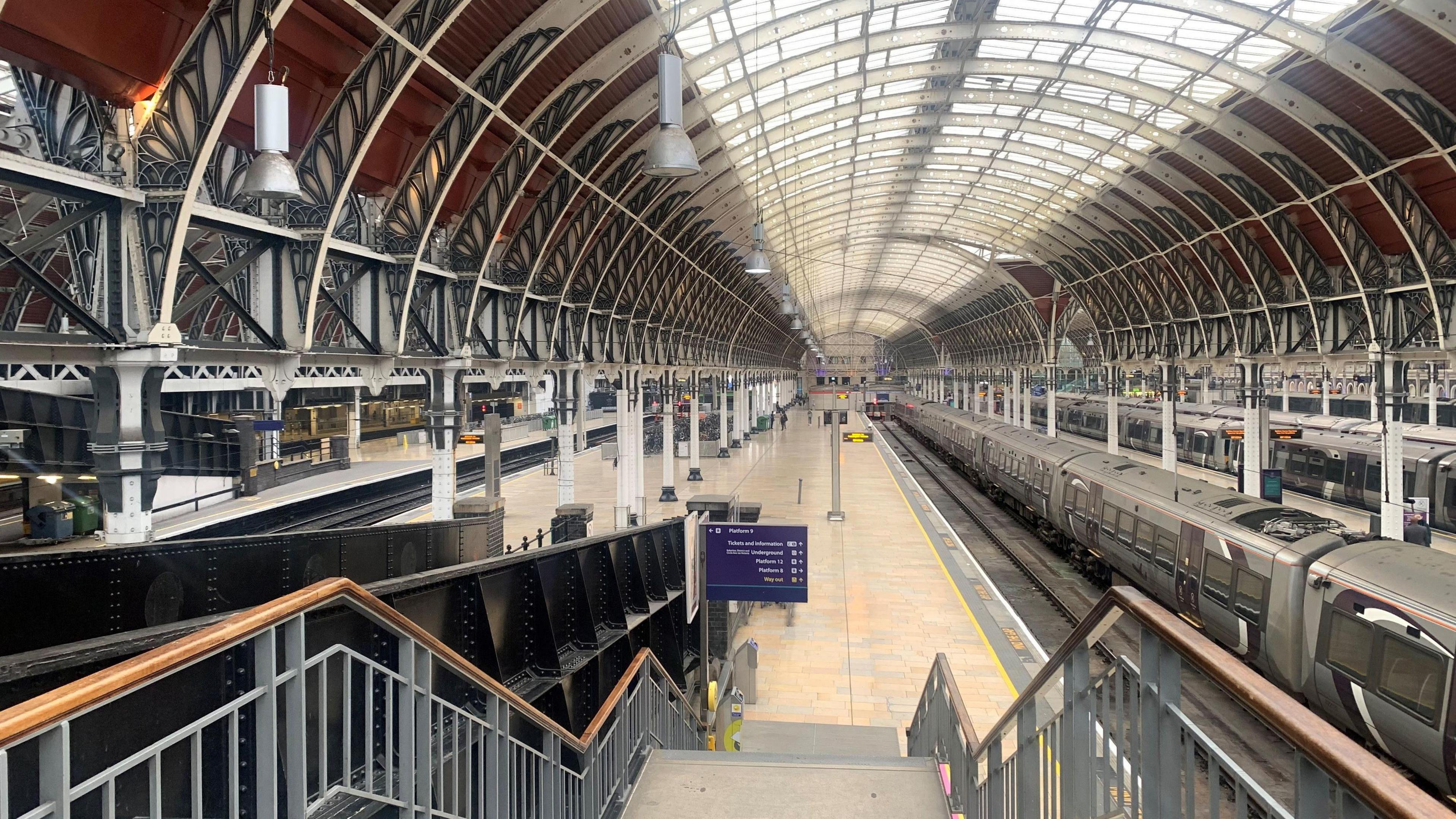Train drivers' pay offer good deal, minister insists

- Published
A new pay offer for train drivers is a "good deal for the taxpayer" because it will end more than two years of strikes, Treasury minister Darren Jones has said.
The offer, which will be voted on by members of the Aslef union, includes a backdated 5% increase for 2019 to 2022, 4.75% for 2022 to 2024, and 4.5% for 2024 to 2025.
The Conservatives say the Labour government has "just caved to the unions", and argue it will mean higher fares for passengers or tax rises.
In a BBC interview, Education Secretary Bridget Phillipson was asked four times who would foot the bill, but declined to be drawn on each occasion.
She told Radio 4's Today programme it was "important that we settle these disputes, and I’m glad that it sounds like we’re going to be able to completely resolve this", adding that the government would ensure passengers got a "fair deal".
The disruption caused and "the massive hit that we took to our economy was completely unacceptable, and was a symptom of the wider failure that we saw right across the public sector, right across industries, by the last Conservative government", Ms Phillipson said.
The government believes the majority of funding for a pay offer for train drivers will come from train operating company budgets.
Ministers intend to set out where the rest of the money will come from at the Budget in October.
It is understood ministers believe most of the funding can come from money already budgeted for pay rises since 2022.
But the government has not provided figures to back this up.
It also leaves open the option that taxpayers pick up part of the pay bill at a time where other services are being cut to save money.
Train strikes near end as union and government agree deal
- Published14 August 2024
Junior doctors offered 22% pay rise in deal to end strike action
- Published29 July 2024
What taxes might Rachel Reeves raise?
- Published24 October 2024
Aslef's leadership is recommending that union members accept the offer.
General secretary Mick Whelan said: "We are pleased that after being treated with utter contempt for the last two years by the privatised train companies, and the previous government that was pulling their strings, we finally have a new government that listens and wants to make the railway work for staff, for passengers and for the taxpayer."
But Conservative shadow transport secretary Helen Whately condemned the government's approach, saying "a 'no-strings' deal means this will be paid for by passengers and taxpayers".
"Ditching working practice reforms leaves a hole in the finances that can only be filled by higher fares or higher taxes," she said.
Citing Labour's decision to scrap winter fuel payments for around 10 million pensioners, Ms Whately added: "The government has chosen to prioritise the unions over passengers and taxpayers - and pensioners too."
Chancellor Rachel Reeves has warned "difficult decisions" will need to be made in October's Budget, and accused the previous Tory government of leaving a £22bn hole in the public finances.
She has indicated that some taxes are likely to rise, but has insisted Labour will stick to its manifesto promise not to raise income tax, National Insurance or VAT.
Chief Secretary to the Treasury Mr Jones said: "Resetting the relationship between government and public sector workers in this instance is a good deal for the taxpayer because we are preventing strikes from happening.
"There is a direct cost to the economy if the strikes continue and we need to work together in partnership with workers and trade unions and business in order to get sustainable growth back into the economy."
Since June 2022, train drivers have taken 18 days of strike action and refused to work non-contractual overtime, causing huge disruption on the rail network.
According to the Department for Transport, the rail industry has missed out on around £850m in revenue as a result.
Liberal Democrat transport spokeswoman Wera Hobhouse said: "Years of Conservative mismanagement has left commuters paying more for less.
"Any action to reach a fair deal for passengers and workers alike is welcome."
However, she added that "keeping travel affordable must be a priority" and called for an immediate price freeze on season tickets.